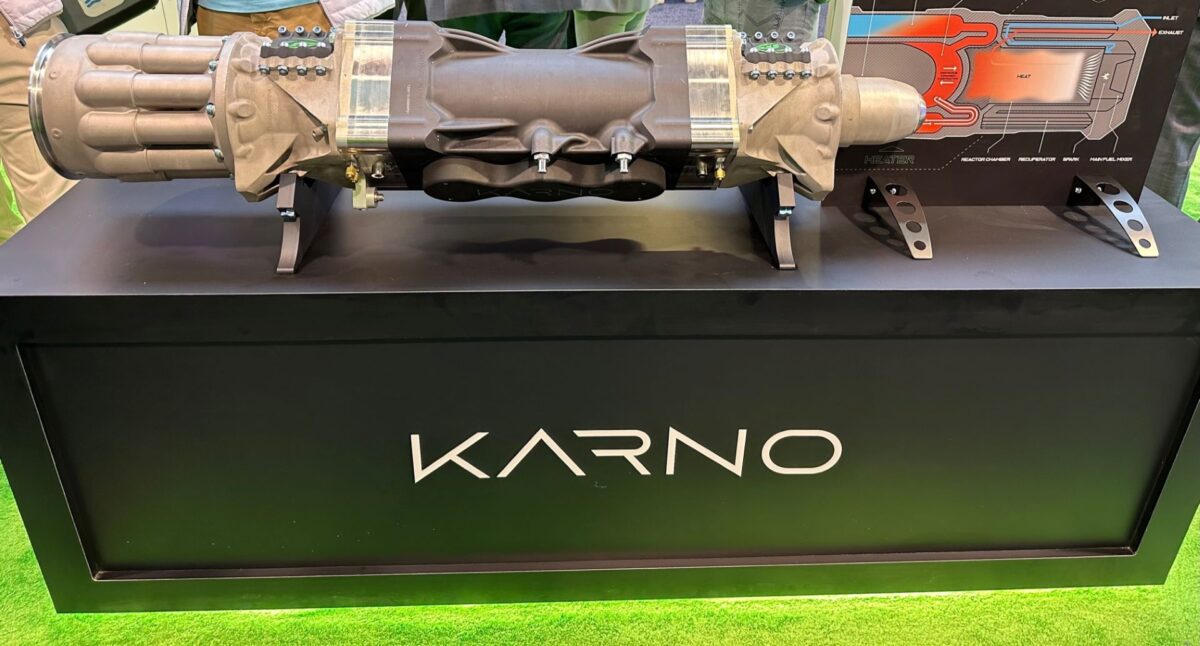Hyliion Holdings is giving up on making hybrid electric powertrains and will lay off 175 employees — two-thirds of its workforce — as it pivots to develop a business around fuel-agnostic generator technology it purchased from GE Aviation.
“Our focus on Karno aligns with the growing demand for electricity,” Hyliion founder and CEO Thomas Healy said in a news release. “With commercial deliveries planned for the upcoming year, the Karno generator offers a more capital-efficient path to market.”
The expected pivot came after markets closed Wednesday as part of the Austin, Texas-based, startup’s third-quarter earnings report. Hyliion’s board of directors approved the moves Tuesday.
After delays and cost overruns, the board began a strategic review in October of the powertrain business Healy founded in 2015. Hyliion stopped taking orders for the powertrain Oct. 11. The wind-down is expected to conclude by the end of the first quarter of 2024 and cost $18.4 million.
The strategic review announcement led shareholders to dump Hyliion (NYSE:HYLN) stock. It lost about half its value on Oct. 11. Shares closed at 59 cents Thursday. The New York Stock Exchange told Hyliion last Thursday that it was out of compliance with its listing requirements because its shares traded below $1 for 30 consecutive days. The exchange could move to begin delisting procedures.
A rare startup with cash on its balance sheet
Hyliion is a rare transportation startup in that it retains much of the cash raised in a reverse merger with special purpose acquisition company Tortoise Acquisition Corp. in 2020. Development of the Hypertruck ERX platform burned through cash with no certainty of market acceptance and no line of sight to raising more money.
As fleets begin replacing diesel models with zero-emission battery-electric trucks, the Hypertuck ERX solution falls short because of complexity, cost and missing out on being a true zero-emissions powertrain.
Hyliion received California Air Resources Board certification for the Cummins 12-liter natural gas engine for the Hypertruck. But CARB won’t recertify it next year. That would require Hyliion to adopt Cummins’ 15-liter replacement and go through the process again.
“The decision around our powertrain business was very difficult,” Healy said. “But we believe it is a necessary step to safeguard our financial stability, especially given the current economic climate.”
Hyliion said it would try to sell its powertrain assets but could not predict whether that would happen. The job cuts were included in Hyliion’s 10-Q filed with the Securities and Exchange Commission.
Karno originally planned for Hypertruck ERX
The company purchased the Karno generator from GE in August 2022 for $37 million in cash and Hyliion stock.
Originally intended as a second-generation powertrain for the ERX, Karno is now Hyliion’s main business. It expects to begin customer deliveries of stationary generators fueled by natural gas, hydrogen, propane or up to 20 additional fuel types.
For electric vehicle charging, bringing Karno generators to a location where utility-installed power is delayed could help match the regulation-driven demand for electric trucks.
“I do see a lot of shippers and carriers testing temporary solutions until they get their permanent solutions in place,” Salim Youssefzadeh, founder and CEO of Truck-as-a-Service startup WattEV, told FreightWaves.
“There are cases where some people can’t get power to their site fast enough. Rather than putting in a diesel generator, they may look at putting a linear generator there using natural gas to create energy. It’s something we are evaluating at some of our locations that are years out in terms of getting power.”
Hyliion has moved into a new research and development and low-volume Karno production facility near Cincinnati. Technology progress reported so far includes:
- Delivering power successfully to the grid as part of ongoing development and validation.
- Executing customer showcases to gin up future sales.
- Performing simulations and in-lab testing indicating achievable power, efficiency and emissions objectives.
Hyliion has enough money to commercialize the Karno, Healy said.
By the numbers
The company projects to finish 2023 with approximately $285 million of available capital. It expects a cash burn of approximately $40 million in 2024.
Third-quarter operating expenses totaled $33.3 million, compared to $62.9 million in the prior-year quarter, which included $28.8 million for the Karno purchase.
Year-to-date expenses totaled $103.7 million, compared to $120.8 million in the prior-year period. Hyliion ended Q3 with $324 million in cash, short-term and long-term investments.
Hyliion expects full-year operating expenses of approximately $140 million, including the cost of winding down powertrain operations. It expects no additional revenue from powertrain sales in 2023.
Editor’s note: Updates with layoffs, NYSE noncompliance letter and edits throughout.
Related articles:
Will stationary power generator save Hyliion?
Hyliion may drop Hypertruck ERX as strategic review begins
Hyliion buys 3D-printed, mixed-fuel generator technology from GE










